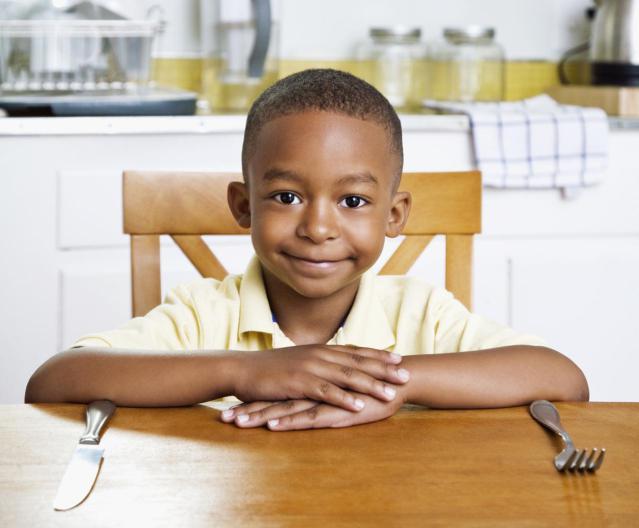Sure, you want your kids to behave and act appropriately at your own dinner table, but did you know that the manners you teach them today will pave the way for a lifetime of meals with friends, family, and neighbors? The teachers at your child’s preschool or daycare will give them the basic skills they need, and by reinforcing at home, you’ll establish dinner as an enjoyable ritual at home, as well as preparing them for dinners out at their friends’ houses and at restaurants.
- What’s this napkin for, anyway? While toddlers may look at silverware and napkins as playthings at first, you can teach them how to use tableware appropriately. This gives them a sense of independence, and allows you to enjoy your meal while they eat. When showing young children how to hold a fork and eat with it, repetition is key, but it will pay off eventually. And asking your child to put her napkin in her nap before eating will ensure that you’re not constantly on the lookout for spills.
- Put a stop to open mouths and potty humor. Kids love to gross each other, and you, out, and for some reason, their penchant for this type of humor escalates as soon as there’s a meal in front of them. Teach them to chew with their mouths shut, to refrain from showing the contents of their mouths to their younger siblings, and to cut out the gross-out jokes at the table. This will spare you embarrassment the next time you take them out to dinner with friends or family.
- Forget about your phone. When you absentmindedly swipe through your apps at the dinner table, or answer that work email, you’re sending a message that everyone is seated at the table simply to eat. But dinnertime is a time to bond and connect, and when you put away your technology, your kids will know that it’s time to relax, chat, and spend time focused on each other instead of on a screen.
- Remember to say “please”. From cooking the meal or setting the table to something as simple as passing the salt, showing gratitude at dinner is key. Model good behavior by thanking your partner for passing the bread, or asking your kids to “please” set the table. Remind them to say “please” when they want more of something, and to thank the cook for a nice meal.
- Communication is key. Establishing dinner as a time to catch up on everyone’s busy day and talk about subjects that interest everyone sets the tone for a meal that isn’t just about food; it’s about company and quality time. Remember to keep the conversation lively, and really listen when you ask questions and receive answers. This will model good communication for your children.
Are your kids experts at navigating their way through a nice meal? Share your tips and tricks in the comments section!

